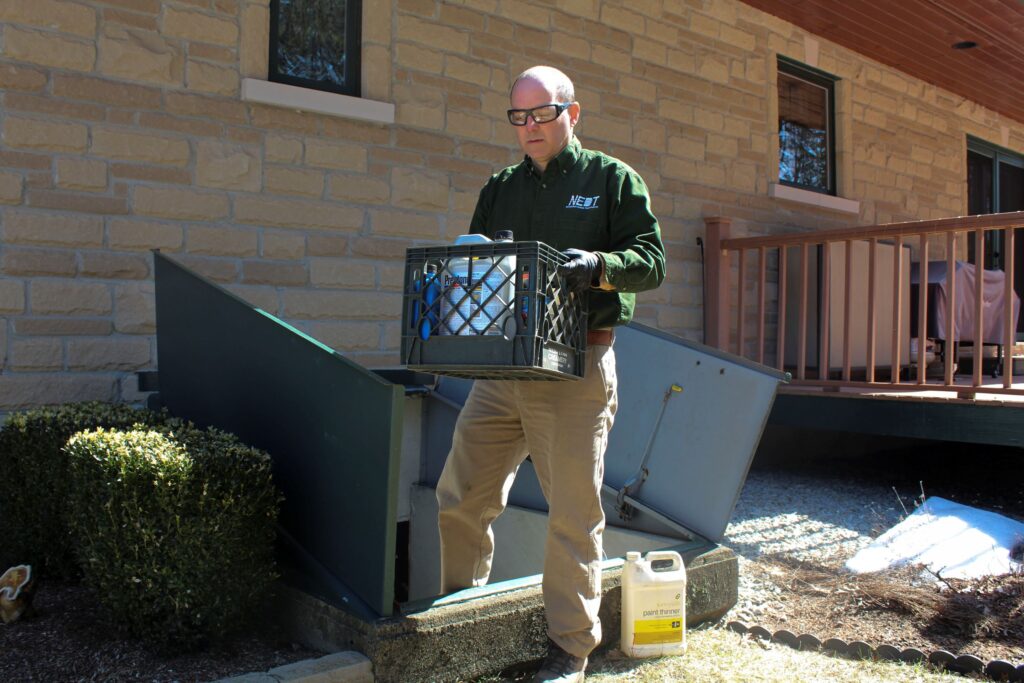With winter and the holiday season just around the corner, now more than ever, it’s important to make sure your home is a safe space. As more people – including children – enter your home, suddenly all those garages, basements, attics, and spare rooms filled with odds and ends can become a danger. While spring cleaning is behind us, learn about how you can keep your children safe from hazardous household products through better understanding, storage, and disposal and how NEDT can help.
Types of Hazardous Waste in Your Home
The following four categories are a good start, but there are many edge cases and additional hazards. Make sure to always read the warning labels on the products you purchase to learn more.
- Cleaning Products: While many are benign, heavy-duty cleaning products can contain solvents, acids, and alkalis, which can cause eye and skin irritation or be poisonous if ingested. Some, like bleach and ammonia, can create toxic gas if combined.
- Electronics (eWaste): Do you have an old CRT monitor? Maybe batteries? These and other forms of electronic waste can contain heavy metals such as mercury or even electrical charge, which can be exposed if damaged.
- Automotive Waste: There are many forms of automotive waste you might have in your garage, from old car batteries to oil to coolant – which is often sweet tasting due to propylene glycol.
- Hobbyist Chemicals: Everything from pool chemicals to photography supplies can fall under this category. A common one is gardening supplies, which can include toxic herbicides and pesticides, as well as chemical fertilizers.
Learn more in our blog, Understanding, Finding & Disposing of Hazardous Waste at Home.
Making Your Home Safe from Hazardous Waste
With a better idea of what hazardous waste you might have in your home, what are your options for dealing with it and keeping your kids away from any hazardous waste?
- Keep hazardous household products safe and secure. This means in sealed containers, locked cabinets, and out-of-reach of children (and pets). It’s also important to keep yourselves safe from them: avoid keeping them in places near heat or open sparks, especially fuels.
- Know what you can and cannot dispose of at home. This includes down the drain or in the trash. Also, ask yourself what can be either reused by you or donated to a neighbor who can put it to good use. It’s important to know all your options.
- See if your local government has disposal events. Or even disposal facilities! Note that many do not run year-round and only accept certain things. Check out our blog, Resources to Learn More About Household Hazardous Waste, for more details.
- Come to an NEDT Collection Center! We have multiple locations in Massachusetts to make it easy to dispose of household hazardous waste. Learn about the customer experience with our video, as well as our Pick-Up Service!
Not sure if it’s time to come in? Start with our Hazardous Household Rating quiz! It will help you decide if you’ve reached enough household hazardous products that it’s time to do something about them. NEDT Household Hazardous Products Collection Centers are here to help with any questions you might have. Call us at 1 (866) 769-1621 or reach out through our online form today to get started.



Leave a Reply